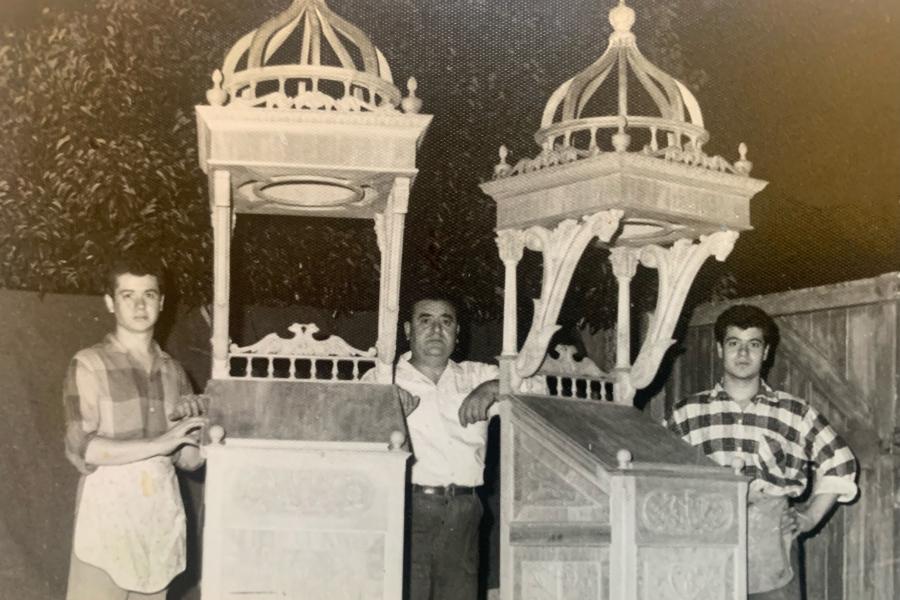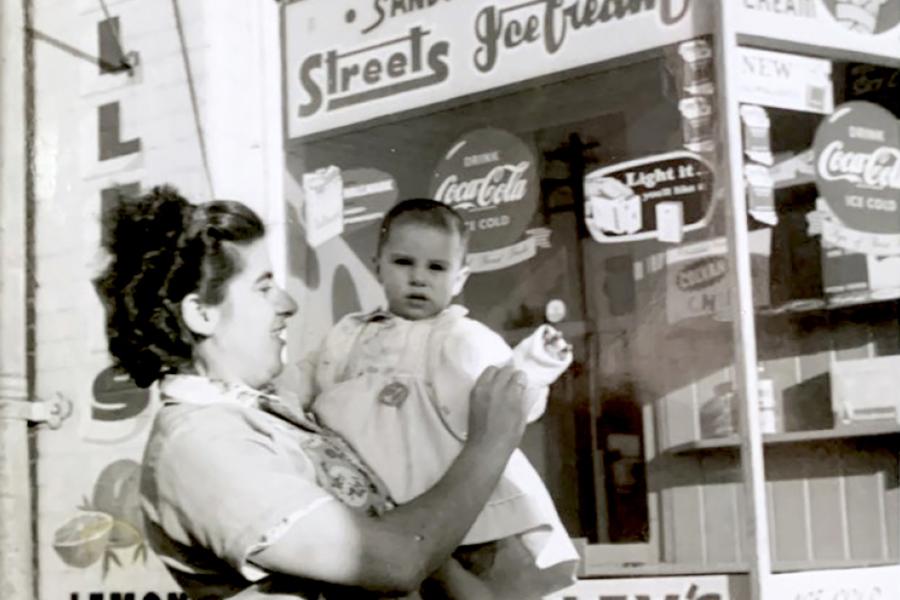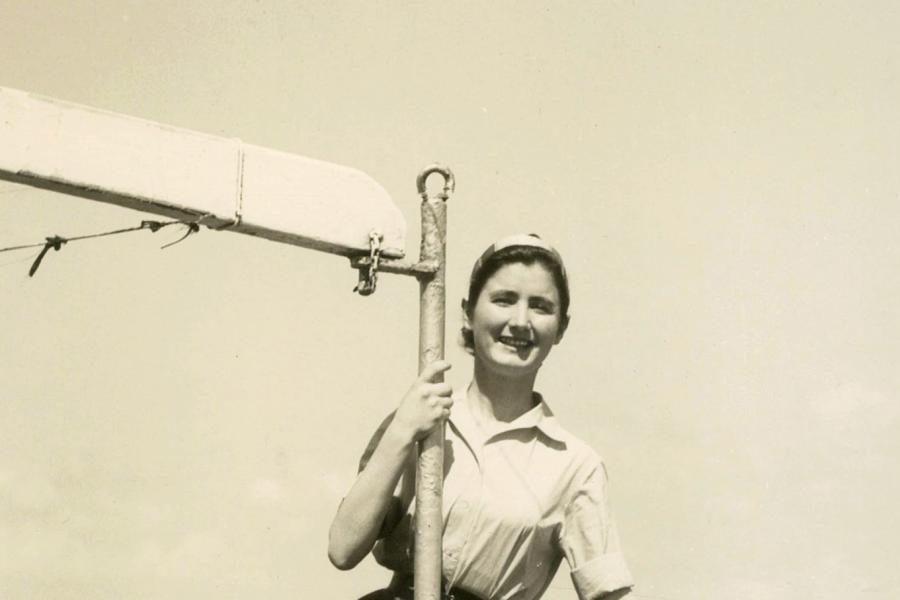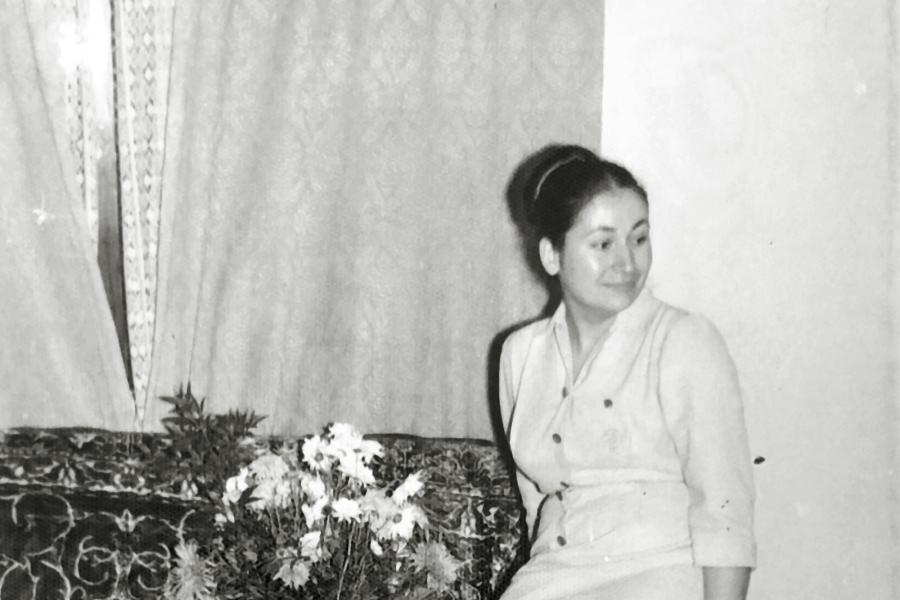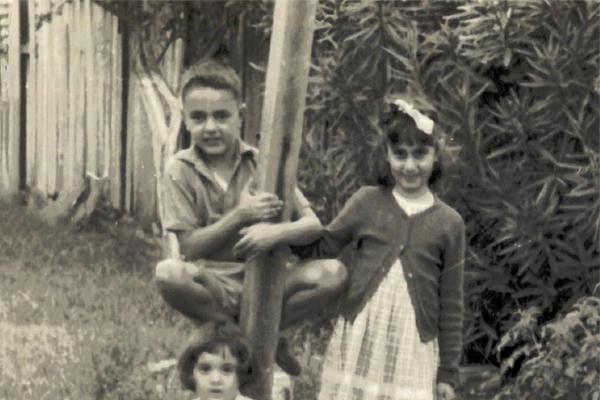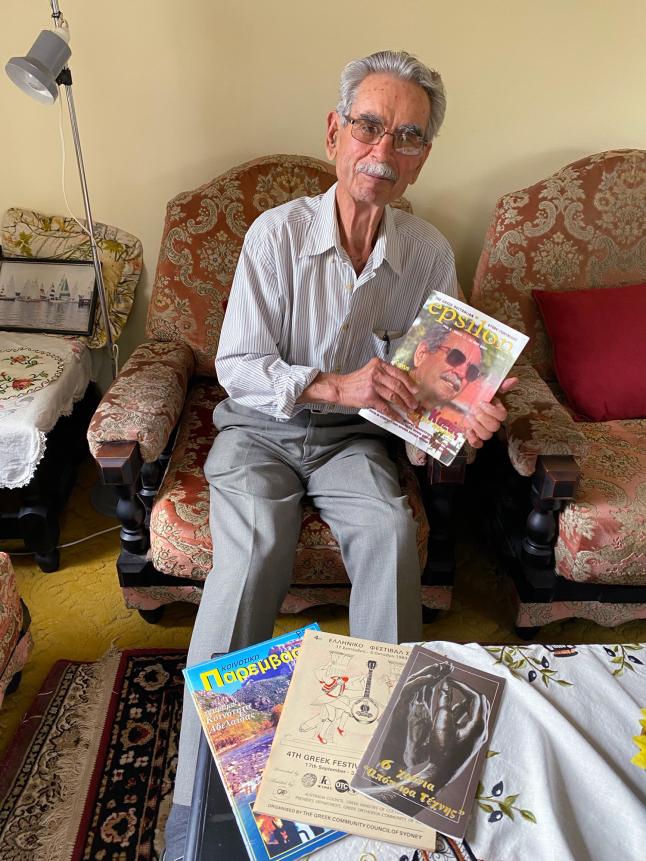

Speaker background
Adrianos was born into a large family in the village of Neo Roino near Nafplion in 1935. He wanted to be a pilot, but lacked the means and social connections. He migrated to Australia because of limited opportunities in Greece. After arrival, he concentrated on quickly mastering English, as a way of escaping menial work. He eventually secured clerical work in the postal service. Over the years, he participated in a number of associations, including the Greek Community of NSW, and has been a prolific writer and published author.
Interview summary
Adrianos discusses the circumstances that led to his emigration, his special desire to master English once he arrived, and the assistance he provided to people from his home town (Nafplion). A highly articulate man, the interview is richly detailed.
Interview highlights
highlight
Adrianos explains his attitude to English when he first arrived in Sydney in 1959.
I told myself I will go and learn English, and that would be my primary asset. I needed to attain a high standard so I could express myself as well as I could in my mother tongue…
So I started reading words and started writing. I bought a Libris [Greek-English Dictionary] and always carried a pen and paper for notes. I was never too embarrassed to politely ask anyone nearby a question. If I may tell you one one detail: I always bought a copy of the Telegraph and looked throughout its pages for clauses. I found it very satisfying when I could recognise 2 or 3 words. One day I found the word “friendship”. I knew the words “friend” and “ship”. I couldn’t see the relationship [between the words]. I stopped a stranger walking past my home, perhaps 5 years older than me, and asked, “Please, if you can spare a moment, I am a New Australian learning English. I read here ‘friendship is you and me”… The man tried for 3 or so minutes to explain, but I then apologised for holding him up and went home to look it up in the dictionary.
Timecode 14:06 - 16:09
highlight
Adrianos explains what happened when he published a letter critical of the military dictatorship in Greece in 1967.
I was president of the Argos Association [a fraternity representing a region of the Peloponnese] and it was necessary to find out how many people from the Argolid were here… to get together, to talk, laugh, dance Tsamiko, Kalamatiana. It was a big thing, then. We needed it for mental health balance.
After the Junta seized power in April [1967], I received a letter from my father, with whom I corresponded frequently. I was opposed to the junta, but in truth I never uttered a word against it. The letter came in August or September. It contained the usual family issues, but he also wrote: “I heard that the president of the Argos Association in Sydney congratulated the [military dictatorship with the words] “nation-saving government."
I wrote a letter to the Hellenic Herald. I ended it with harsh words for the junta lackey who misrepresented me. […] Anyway, that’s how I felt at the time.[…] I published the letter with the Hellenic Herald. The next day there was a banging on my door from a journalist from the Sydney Morning Herald. […] When the [Greek] Consul General saw my letter, he told someone he knew in our Association: “Go find your president and tell him to beware. No, not to beware. Get him to apologise for writing that letter, because the Greek government [the junta] will renounce his Greek nationality”.
Timecode 39:51 - 43:13
